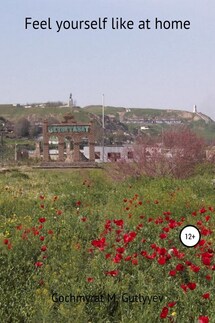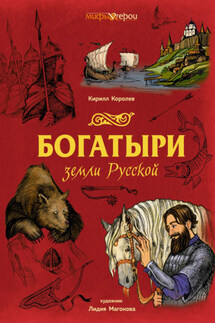Feel yourself like at home - страница 7
As an introduction, let me say that, since the olden times, basic rules have been developed by the Turkmens (only a few of them would be mentioned here):
Who should greet the other person first?
A standing person greeting a sitting one;
A passerby greeting one who is doing a physical work (often, even if the former is older than the latter);
One who rides a horse greeting one who walks;
Obligatory, a younger person greeting an older one;
A host greeting a guest.
Nevertheless, there is no rule without exceptions. It is expected of a truly polite person to be able to greet properly and, what is not less important, to give relevant answers respectfully while being greeted. Otherwise, a man may face an unpleasant situation when only few people would greet him as they meet.
Again, for a more vivid Illustration I would “call to assist” another one of my numerous neighbors. I have some personal reasons not to pay tribute to him, currently quite an elderly man. Fortunately, I am a pretty good and attentive observer, and usually I notice his approaching from a far distance. Then, often it is enough to step aside or to make a face of “one deep in thoughts”, and thus letting him to pass away like one “unseen by me, and left without a salam”. However, when once I was weeding the vegetable patches at our front garden, suddenly, as I straightened up, I met his gaze face to the face. Without any sound I returned to work and buried my nose into the tomato bushes. He growled up at once: “You have to say salaam to an elder one, silly boy”. It was a doubly offending remark, keeping in mind that I myself was not young, and had my own teen kids.
Frankly, I succeeded to suppress my irritation, and did not snarl back but merely stared gloomily. Nevertheless, in couple of days at one of the frequent community events I described the situation to the others, emphasizing my unwillingness to interact with the neighbor. I was seeking an advice from other yashuli[7] – how to behave when we meet next time. Suddenly, I found that I would not be alone in my attitude to that man. A youngster, one of a group which stood nearby and heard my words, broke into the conversation of the elders (a manner by itself a little bit surprising) and exclaimed: “Hey, he never replies. Do we need to pay attention to him?”
Obviously, a classical saying, “treat others the way you would like to be treated yourself”, never and under no circumstances has lost its significance.
Naturally, a direct reprimand may cause a reciprocal resentment and an unwillingness to behave as “advised”. That is why in a Turkmen community a world-wise and experienced adult frequently uses indirect hints prompting a youngster to pay an attention that something might be wrong in his or her behavior.
Here is an example of applying this method. If in a Turkmen community a much elder man would greet a much younger first, this might be considered a joke or a reproach. Even if the greeting would be made not angrily but quite politely made, it would be seen as a biting irony.
On the other hand, if a youngster is recognized as an outstanding personality – for bravery, for intelligence, or just returning to the community after a long absence, – such address would be an expression of a special regard. However, even in this case, it would be proper for a younger person to greet an elder first.






